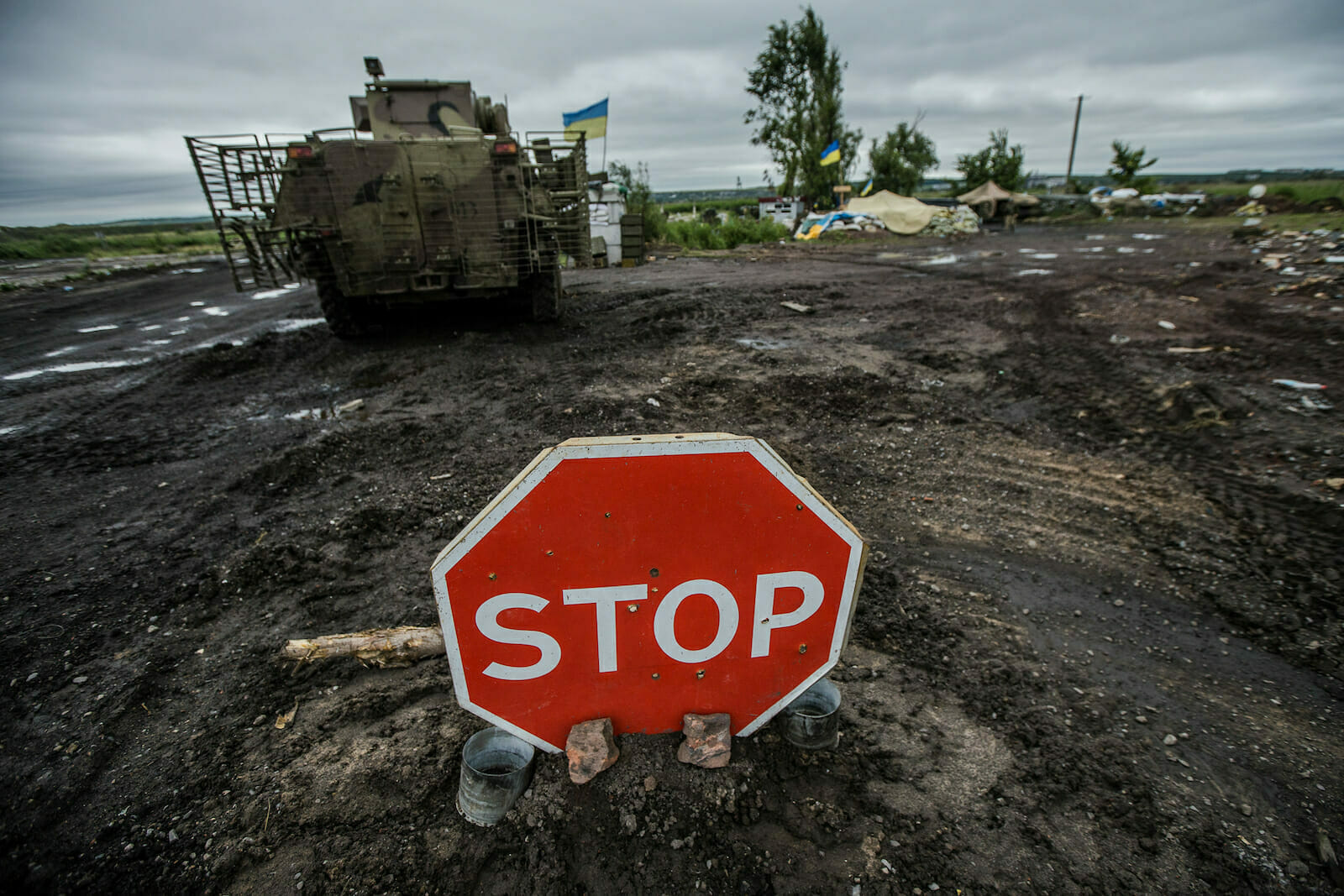
The Deal that Brought Ukraine to the Brink
There is something about the Olympic games that connects Russia with regional mischief. During the 2008 Beijing Olympics, Russia violated Georgian territory with military force, igniting a nasty five-day war. In 2014, while Vladimir Putin attended the winter Olympics in Sochi political trouble boiled over in Ukraine.
The European Union (EU) trade bill is the culprit, at least on the surface, that ignited the crisis. The issue is whether to accept the European Union’s trade agreement in order to facilitate economic growth and bi-lateral relationships with the West or to remain under Russian economic and political influence, which the West hopes Ukraine will avoid. So, the question is: should Ukraine accept the European Union (EU) trade deal once the political rupture has subsided?
Yes to the trade bill
The EU trade bill is a direct result of the 2008 Deep and Comprehensive Free Trade Agreement (DCFTA) between the European Union and Ukraine. The DCFTA deal is designed to facilitate existing trade and commerce between the two regions, including the expansion of intellectual property rights, energy sectors, ‘public procurement,’ and other services. According to a European Union report, a huge share of Ukraine exports goes to the European Union including iron, steel, and heavy machinery.
The trade bill is deeply political. On the one hand, it aims to promote economic growth through free and open trade between Europe and Ukraine and, on the other, it seeks to lessen Russian influence in Ukraine, an issue that has larger political implications among Europe, Ukraine, and Russia.
The trade factors can, however, lead to political circumstances that could bring an end to the current crisis. Russian President Vladimir Putin recently mentioned that Russia would ‘welcome’ an economic partnership between the EU and Ukraine. The EU trade deal is primarily designed to set Ukraine’s economic and political trajectories toward the West. But Ukraine should carefully tread water. Reforming its democracy and promoting economic growth first requires setting up sound democratic ideals and institutions.
In other words, Ukraine’s current political and democratic infrastructures are not ready to embrace the ‘European values’ that the ‘Euromaidan’ activists have demanded.
Much of Ukraine’s foreign investments have gone into the pockets of very few elites, leaving the general population marginalized. Transparency and accountability in the government are hardly functional. But these dysfunctions also present opportunities for Ukraine. One key prospect is the narrowing of the historical division between the East and the West. The UK Telegraph recently argued that the prospect of a renewed economic ties between the EU and Ukraine would offer possibilities to build ‘trust’ between the East and the West and erase the historical divide between the two regions.
No to the trade deal
Power and legitimacy are at odds in this crisis. It is clear that the EU wants to wrest Ukraine from Russia, both politically and economically. But Ukrainian top diplomats have shown resiliency and scepticism against the EU offer. Ukraine’s ambassador to the EU, Kostiantyn Yelisieiev, dejectedly argued against the pre-conditions. He said that “his country fails to understand why conditions are imposed on Ukraine.”
Ambassador Yelisieiev implied that there was unfair treatment towards Ukraine by the European Union. The ambassador argued the “United States is not being forced to abolish the death penalty before the EU moves forward in setting up a free trade area with its transatlantic partner.” The political risks are huge for both Russia and Ukraine and Russia has a lot of stake in Ukraine. Mr. Putin is clearly reluctant to lose Russian influence in Ukraine, which was put at peril by Viktor Yanukovych’s decision to flee the country and seek political exile in Russia.
With Russia’s ‘troop deployment’ to the Crimea and the latter’s absorption into Russia following a recent referendum and the signing of a treaty of accession making Crimea and Sevastopol Russian regions, Russia was prepared to go to extremes to keep Ukraine in Russia’s sphere of influence. The deployment was to ensure the protection of the Russian naval base in the Crimea peninsula and to protect ethnic Russians from “Russophobes and neo-Nazis.” According to a 1994 treaty, Russia has the right to ‘station’ 25,000 troops in the Crimean peninsula. Furthermore, Russia can ‘station’ these soldiers “not only at the Sevastopol naval base but also on bases throughout the country.”
It is no mystery that Mr. Putin is compelled to protect Russia’s national interests by securing its naval fleet in Crimea, home to a large population of “ethnic Russians.” Mr. Putin also framed his argument for “troop deployment” as a protection of ethnic Russians. Beyond Putin’s land grab in the Crimea is the chance that Putin might be emboldened and attempt a further takeover of Ukraine. However, in a news conference with Russian journalists in the Kremlin, shortly after Russian troops deployed to the Crimea, Putin was not shy about scolding the West as portraying himself as the great protector of Russians living abroad. During the interview, which during at times, he came across as irritated, Putin scolded the journalists about Soviet and Russian history telling them of the greatness of the former Soviet Union and how the empire that was once great no longer exists.
“Millions of Russians went to bed in one country and woke up abroad,” Putin said. “Overnight, they were minorities in the former Soviet republics, and the Russian people became one of the biggest — if not the biggest — divided nations in the world.” At one point Putin called Kyiv “the mother of Russian cities,” illustrating that he considered Ukraine still a prize worth taking. Putin’s policies towards Ukraine is very much driven by his decision to flaunt Western indecision and a sort of political payback for NATO’s involvement in the Balkans in the 1990s and the 2011 intervention in Libya.
The trade between Russia and Ukraine is important for both countries. Russia currently supplies 60 percent of its natural gas to Ukraine and provides jobs to nearly half a million. On the other hand, Ukraine exports close to $20 billion in goods and services to Russia. Economically, both countries could suffer should Ukraine completely break ties with Russia.
Going forward
Politics and trade deals are inseparable. Since late last year, the trade deal that led to the political crisis in Ukraine has taken centre stage, igniting riots and social movements from anti-government activists and supporters. So far, the movement organisers have paid a steep price – 77 dead and hundreds injured. Russia, Ukraine, and the West are undeniably at democratic, political, economic, and social crossroads. They must exercise their own sovereignty unequivocally while building strategic partnerships with each other to address and solve local and global issues. There is nothing undemocratic about that.


